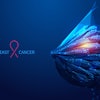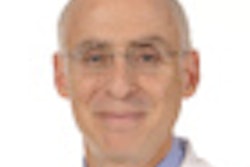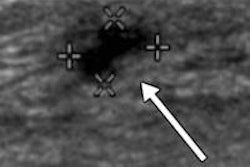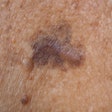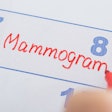A new study published online September 9 in the journal Cancer has found that more than 70% of deaths from breast cancer in a group of more than 7,000 women occurred in individuals who did not receive regular screening mammograms. The findings indicate that breast screening saves lives -- particularly for women in their 40s, the researchers believe.
The use of mammography for breast cancer screening in women between the ages of 40 and 49 has been controversial, especially since the U.S. Preventive Services Task Force (USPSTF) proposed in 2009 to limit screening to women ages 50 to 74 years -- and then biennially rather than annually.
Since the USPSTF announcement, the field of women's health has been roiled by dueling clinical studies coming down for and against breast cancer screening. Some skeptics have advocated that screening be limited to older women per the USPSTF guidance, while others have gone further, casting doubt on the efficacy of breast screening for women in any age group. Mammography advocates have fired back with studies of their own backing breast cancer screening.
Looking forward
To address the controversy, researchers from Massachusetts General Hospital, Harvard Medical School, and other Boston institutions examined the value of mammography screening using an analytical technique called failure analysis, which involves analyzing a "failure" -- in this case, the death from breast cancer -- and why it occurred. The researchers used the technique to look backward from death to uncover correlations between the patients who died and whether they received breast screening (Cancer, September 9, 2013).
"In the presence of conflicting evidence, national recommendations for screening mammography have become a point of contention," wrote corresponding author and surgical oncologist Dr. Blake Cady and colleagues. "Surgical procedures, systemic adjuvant therapies, and radiation treatments for breast cancer have changed over recent decades, and as breast cancer mortality continues to decline, it is important to determine the proportional decrease in mortality, if any, that is due to modern mammography."
Cady and colleagues used data from two hospitals, Massachusetts General Hospital and Brigham and Women's Hospital, both part of the Partners HealthCare system. The team tracked invasive breast cancers diagnosed between 1990 and 1999 and followed through 2007.
The dataset included information on demographics, mammography use, surgical and pathology reports, and recurrence and death dates. To verify that a patient had died of breast cancer, the researchers used proof of distant metastatic disease by biopsy, other operation, radiological pattern, or laboratory or clinical reports. They also used clinical and progress notes, death certificates, hospital discharge summaries, and autopsies.
Among 609 confirmed breast cancer deaths, 29% were among women who had been screened with mammography, while 71% were among women who were not screened regularly. Also, the women who died of breast cancer were younger: Of all breast cancer deaths, only 13% occurred in women age 70 or older, but 50% occurred in women younger than 50.
"If half the deaths of women who develop breast cancer and die occur in women under the age of 50, that implies we could probably prevent many of those deaths by screening women in their 40s," Cady told AuntMinnie.com.
Breast cancer mortality in the 7,301 women with invasive breast cancer diagnosed between 1990 and 1999 was only 9.3% at a median of 12.5 years, compared with 50% mortality before 1969, according to the authors. And with more prevalent regular screening, particularly in younger women, breast cancer mortality could decrease to much less than 10% overall in the coming decade -- perhaps becoming as low as 5% overall by 2030.
"I did my medical training in the '60s, and I have seen with my own eyes the dramatic difference in mortality rates since breast cancer screening was introduced," Cady said.
Why failure analysis?
Why did the researchers choose the failure analysis technique? Because randomized, controlled trial data -- and meta-analyses of these data -- can misjudge the effectiveness of screening mammography, according to Cady and colleagues.
"Meta-analysis of trials underestimate true effectiveness of mammography due to compliance and contamination biases in experimental and control groups, respectively," they wrote. "Population-based evaluations of women actually screened usually show reductions in mortality much greater than those found by randomized, controlled trials."
Critics may say that failure analysis is not appropriate for evaluating screening mammography because it's not a randomized trial. But the process is an important discipline, according to Cady.
"Failure analysis is a standard part of not only academic medicine, but also many other fields," Cady told AuntMinnie.com. "Think of those black boxes in airplanes -- that's failure analysis. Every week in surgical service, we have a morbidity and mortality conference, reviewing the cases of patients who died to determine what happened. That's a failure analysis, too. It's a different way of looking at things."
The data used by USPSTF actually demonstrated that annual screening improved outcomes, he said.
"The USPSTF performed a meta-analysis of randomized, controlled trial data, and then made models based on that, from which they drew their conclusions," he said. "And their models showed that annual screening improved outcomes by 70%. But their paper did not discuss that. They were concerned with how resources would be allocated, and emphasized the 'harms' of screening mammography rather than the benefits."
Cady's team hopes that the study will spark further investigation.
"In the debate over screening mammography, the believers believe and the disbelievers don't," Cady told AuntMinnie.com. "A single study won't change their minds. But we hope our findings will stimulate others to conduct further research and to look more critically at the current recommendations."


